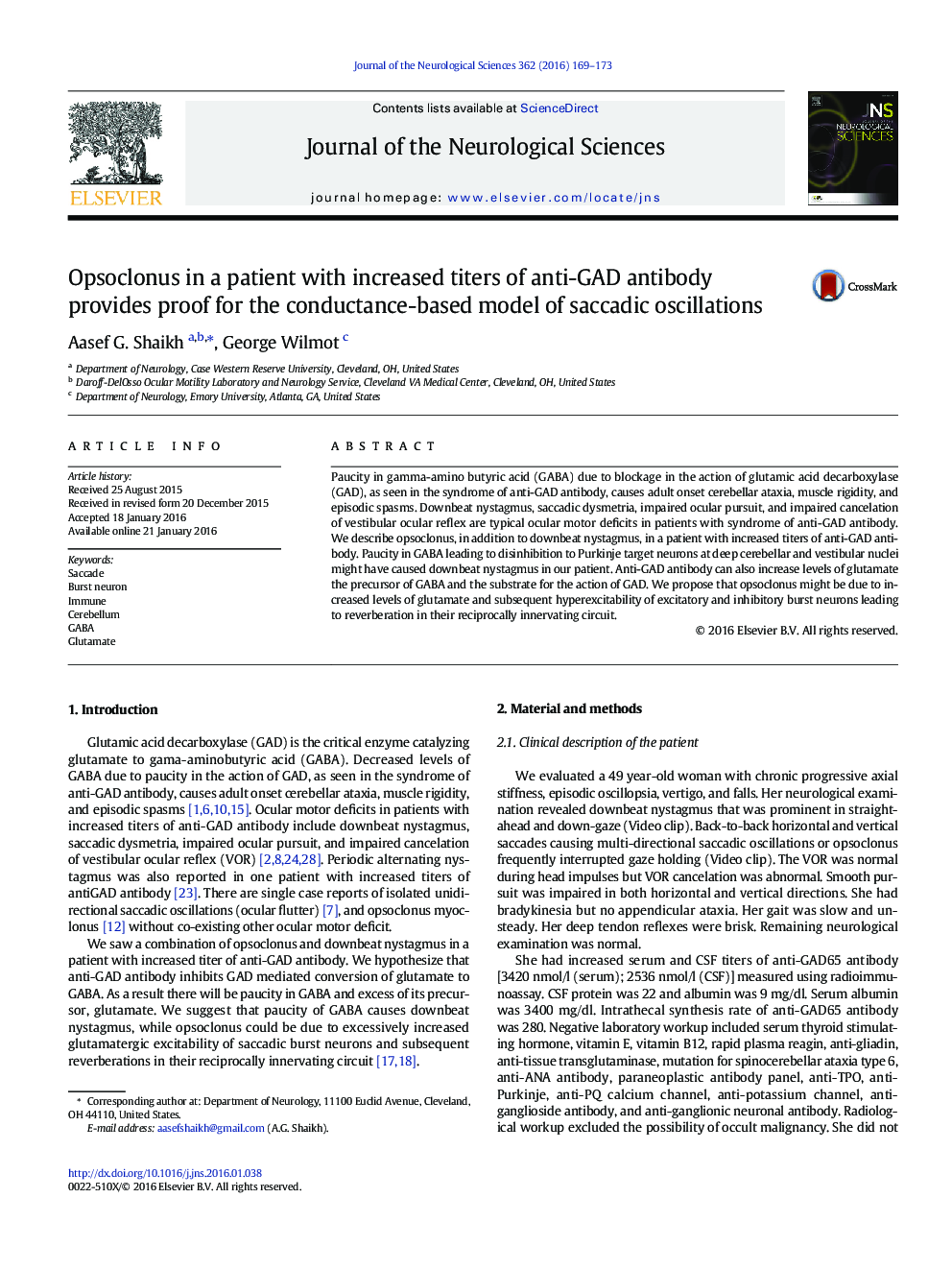| کد مقاله | کد نشریه | سال انتشار | مقاله انگلیسی | نسخه تمام متن |
|---|---|---|---|---|
| 1913056 | 1535100 | 2016 | 5 صفحه PDF | دانلود رایگان |
• AntiGAD antibodies can cause prominent ocular motor deficits.
• We describe opsoclonus with downbeat nystagmus in a patient with antiGAD antibody.
• Paucity in GABA can cause downbeat nystagmus.
• Anti-GAD antibody can impair action of GAD reduce degradation of glutamate.
• Increased glutamate and hyperexcitability of burst neurons can cause opsoclonus.
Paucity in gamma-amino butyric acid (GABA) due to blockage in the action of glutamic acid decarboxylase (GAD), as seen in the syndrome of anti-GAD antibody, causes adult onset cerebellar ataxia, muscle rigidity, and episodic spasms. Downbeat nystagmus, saccadic dysmetria, impaired ocular pursuit, and impaired cancelation of vestibular ocular reflex are typical ocular motor deficits in patients with syndrome of anti-GAD antibody. We describe opsoclonus, in addition to downbeat nystagmus, in a patient with increased titers of anti-GAD antibody. Paucity in GABA leading to disinhibition to Purkinje target neurons at deep cerebellar and vestibular nuclei might have caused downbeat nystagmus in our patient. Anti-GAD antibody can also increase levels of glutamate the precursor of GABA and the substrate for the action of GAD. We propose that opsoclonus might be due to increased levels of glutamate and subsequent hyperexcitability of excitatory and inhibitory burst neurons leading to reverberation in their reciprocally innervating circuit.
Journal: Journal of the Neurological Sciences - Volume 362, 15 March 2016, Pages 169–173
